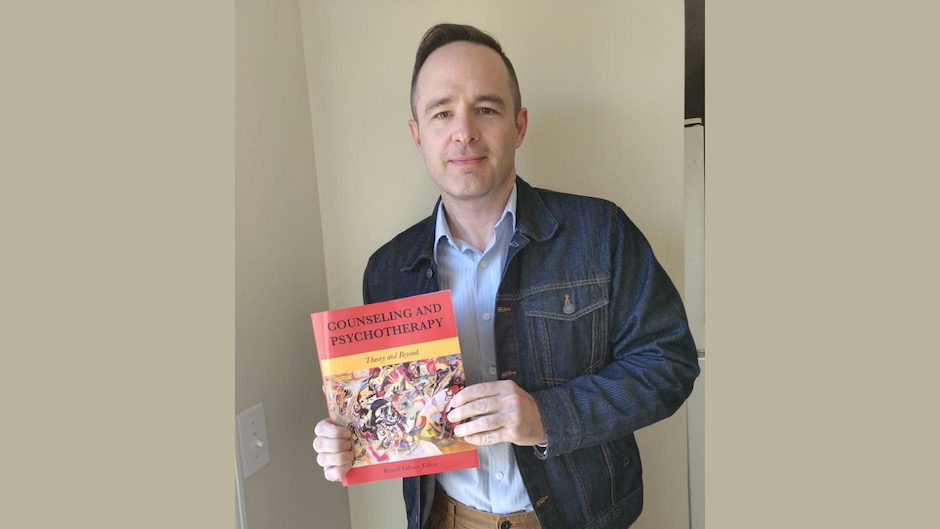19 Apr 2022
Our mental health affects every aspect of our lives. Most people have experienced mental health issues such as depression and anxiety or know someone who has. Therefore, understanding the best practices for treating mental illnesses is vitally important.
What are the new developments in theories and approaches to mental health treatment? How have recent advances in technology affected counselling?
Dr Russell Fulmer, associate professor in the Academy of Future Education at Xi’an Jiaotong-Liverpool University, is the editor of a new book that focuses on these questions. Counseling and Psychotherapy: Theory and Beyond describes multiple areas of counselling and psychotherapy, with contributions from 37 experts from diverse cultural backgrounds.

Dr Fulmer introduces chapters on psychoanalysis, trauma-informed counselling, neuroscience-informed counselling, helping clients from collectivist cultures, artificial intelligence and technology paired with mental health, and more.
“This book explores many different aspects of mental health. It talks about everything from neuroscience to creativity and how nature-based approaches to therapy can be helpful,” says Dr Fulmer.
“We go beyond the old way of thinking and present a mixture of modern and classic theories and approaches to counselling. A major theme is innovation and the new models that helping professionals use.”
Going forward with AI
The emphasis on technology makes this an especially noteworthy volume for anyone teaching or taking a counselling theory or skills course.
“This book expands on the traditional biopsychosocial model, used to understand a person’s thoughts and behaviours, to include a technological aspect – a biopsychosocial-techno model (BPS-T). Technology is ingrained in people’s lives, such as through smartphones or online education. Whether one has access to it or not, we are all influenced by it directly or indirectly,” Dr Fulmer explains.
“The BPS-T model can also help to assess how a student may respond to various educational methods. For a student to succeed, their biological considerations are important (e.g., health, Covid-19), along with their individuality, culture, technological competence, and access to technology.”
Dr Fulmer also contributes a chapter on the use of counselling chatbots in mental health support and as a supplement to traditional therapy.
“These chatbots can be effective for helping with depression and anxiety. People don’t feel judged when speaking to a bot, and these bots are available all the time, 24-7,” he says.
Dr Fulmer explains that the book has a heavy cross-cultural emphasis as well. It features a diverse set of authors discussing many issues, such as the impact of culture on the ethics of using technology in counselling.
“Ethics is one of the most important things to consider when looking at the intersection of AI and counselling psychology,” says Fulmer. “As AI becomes incorporated into mental health support, it’s important that we do a much better job of inserting diversity considerations. There needs to be more cross-cultural, multicultural programmers.”
The book, Counseling and Psychotherapy: Theory and Beyond is published by Cognella.
By Xiaoyan Jin
Edited by Catherine Diamond
19 Apr 2022








